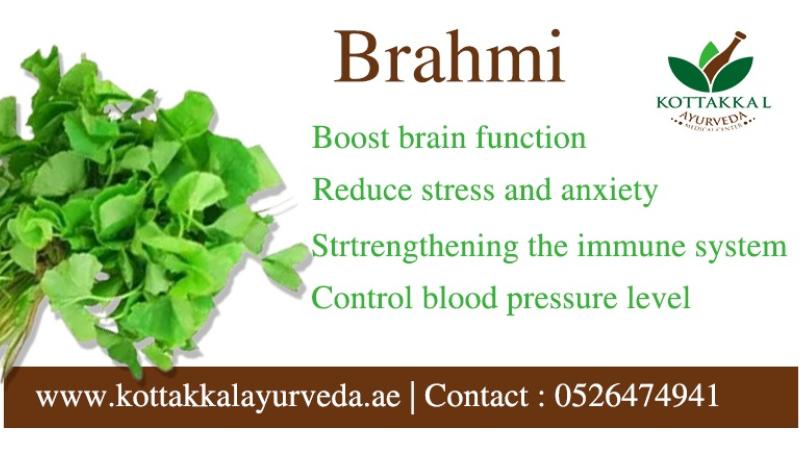BRAHMI , also called Bacopa monnieri , belongs to the family scrophulariaceae. The term brahmi is derived from the word ‘Brahma’ , which refers to the mythical God of creation in Hindu mythology.
Brahmi has been used for nearly 3000 years in Ayurvedic medicines . As brain is considered the centre of creative activity, any substance that might boost the brains health is known as brahmi. Brahmi may be recognised as a popular memory booster.
Properties of Brahmi
It may have analgesic potential, anti inflammatory, anti microbial, anti depressant and anti oxidant property. It may benefit liver and stimulate the immune system. Brahmi has been used for a variety of purposes, including improving memory, reducing anxiety and treating epilepsy.
Brahmi contain powerful compounds that may have anti oxidant effects. The substance that help protect against cell damage caused by harmful molecules called free radicals. Many studies show that Bacopa monnieri may have potent anti inflammatory properties and suppress pro inflammatory enzymes and cytokines .
Brahmi may boost brain functions , improve memory, attention and ability to process visual information. Research suggests that Brahmi helps reduce stress and anxiety by elevating the mood and reducing levels of cortisol , a hormone that is closely linked to stress levels. Brahmi may help keep blood pressure within a healthy range. It is known to help ease the symptoms of Alzheimer’s disease. It helps in strengthening the immune system.
According to Ayurveda, the whole plant can be used for medicinal purposes . Brahmi is one of the best herbs for balancing and rejuvenating pitta, while at the same time strongly reducing kapha. It has bitter and sweet taste ( rasa) , cooling energy (virya) and sweet post digestive effect ( vipaka) . It normalizes all tridoshas and all dhatus . It has an effect on numerous srotas like circulatory, digestive, nervous, excretory, muscular and reproductive.
Ayurvedic formulations of brahmi
- Brahmi rasayana
- Brahmi ghrita
- Sarasvatarishta
- Brahmi vati
 Ajman:052 6474941
Ajman:052 6474941  Dubai 055 3699446
Dubai 055 3699446 Satwa +971 55 610 3056
Satwa +971 55 610 3056 Sharjah +971 50 6545235
Sharjah +971 50 6545235 


